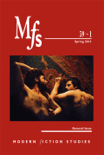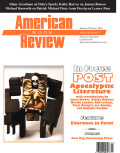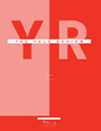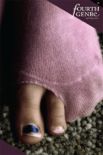
PARIS REVIEW
Scope & Guideline
Connecting Emerging Talents with Established Voices
Introduction
Aims and Scopes
- Fiction and Short Stories:
The journal is renowned for its commitment to publishing original short stories from a variety of authors, often featuring experimental narratives that challenge traditional storytelling techniques. - Poetry:
With a dedicated section for poetry, The Paris Review highlights contemporary poets and their works, promoting a diverse array of poetic forms and themes that reflect modern sensibilities. - Literary Interviews:
The journal conducts in-depth interviews with prominent authors, offering insights into their writing processes, influences, and the literary landscape, making it a valuable resource for readers and writers alike. - Essays and Nonfiction:
The Paris Review publishes essays that engage with literary criticism, cultural commentary, and personal reflections, often exploring the intersection of literature with contemporary societal issues. - Thematic and Experimental Works:
It frequently showcases works that push boundaries in terms of structure and content, encouraging innovative literary forms and thematic explorations.
Trending and Emerging
- Exploration of Identity:
Recent publications increasingly delve into themes of identity, including race, gender, and sexuality, reflecting a broader societal conversation and the quest for representation in literature. - Interdisciplinary Approaches:
There is a growing trend towards interdisciplinary works that blend literature with visual art, music, and other creative fields, showcasing the interconnectedness of various forms of expression. - Experimental Poetics:
An uptick in experimental poetry that challenges traditional forms and conventions is evident, with poets exploring new languages, styles, and formats that resonate with contemporary audiences. - Personal and Intimate Narratives:
The journal is seeing a rise in personal essays and intimate storytelling, where authors share vulnerable experiences, making literature more relatable and emotionally resonant. - Environmental and Societal Themes:
Emerging themes related to environmental concerns and societal issues are becoming more prevalent, as writers engage with pressing global challenges through their literary works.
Declining or Waning
- Traditional Narrative Forms:
There has been a noticeable decline in the publication of conventional narrative structures, with fewer stories adhering strictly to classical storytelling arcs, as the journal increasingly embraces experimental forms. - Straightforward Literary Criticism:
The journal's focus on straightforward literary criticism appears to be waning, as more nuanced and thematic essays take precedence, reflecting a broader cultural context rather than isolated critiques. - Long-form Nonfiction:
There seems to be a decrease in long-form nonfiction pieces, with shorter, more concise essays gaining traction, perhaps indicating a shift towards accessibility and immediacy in writing.
Similar Journals

MFS-Modern Fiction Studies
Unveiling the Intricacies of Literary TrendsMFS-Modern Fiction Studies is a premier journal in the field of literature and literary theory, published by Johns Hopkins University Press. With an impressive impact factor and a 2023 classification in Q1, this journal stands out as a vital resource for scholars, researchers, and practitioners interested in contemporary fiction analysis and criticism. The journal aims to foster innovative scholarship, enhance discussions around literary trends, and explore the intricacies of modern narrative forms. Notably, it ranks #119 among 1,106 in the Scopus Arts and Humanities category, placing it within the top 89th percentile. Published four times a year, MFS is committed to making significant contributions to the understanding of modern fiction, making it a must-read for anyone vested in the evolution of literature. Access options are available through institutional subscriptions, ensuring that readers can engage with cutting-edge research and discourse in the literary community.

Appalachian Heritage-A Literary Quarterly of the Southern Appalachians
Engaging with the Heartbeat of AppalachiaAppalachian Heritage is a distinguished literary quarterly dedicated to exploring the rich cultural tapestry of the Southern Appalachians, published by the University of North Carolina Press. With a focus on literature, folklore, and the arts, this journal serves as a vital platform for scholars, writers, and enthusiasts alike. Through its thoughtfully curated content, Appalachian Heritage not only celebrates the unique voices and stories of this region but also contributes to a broader understanding of Appalachian identity within the greater context of American literature. While the journal operates under traditional access models, its editorial commitment to quality and cultural relevance ensures that it remains an essential resource for those seeking to delve into the literary heritage of the Southern Appalachians. The journal features a blend of academic articles, creative works, and critical essays that engage with themes of place, memory, and community, making it a must-read for anyone invested in the intersection of literature and culture.

GIORNALE STORICO DELLA LETTERATURA ITALIANA
Illuminating the Evolution of Literary DiscoursesGIORNALE STORICO DELLA LETTERATURA ITALIANA is a distinguished journal published by CASA EDITRICE LOESCHER that serves as a critical platform for the exploration and analysis of Italian literary history. With an ISSN of 0017-0496, this journal encompasses a broad spectrum of topics within the field of literature and literary theory, contributing to the academic dialogue surrounding Italy's rich literary heritage. Although it is not openly accessible and has discontinued its coverage in Scopus since 2021, the journal has established its presence in the scholarly community, being ranked in the 18th percentile within the literature and literary theory category. Its historical significance and focus on literature position it as an essential resource for researchers, professionals, and students keen on deepening their understanding of Italian literature and its impact on cultural studies. By engaging with the contents of this journal, readers will gain valuable insights into the evolution of literary discourses and the role of Italian literature in contemporary society.

AMERICAN BOOK REVIEW
Fostering Critical Engagement with Contemporary NarrativesAMERICAN BOOK REVIEW is a pivotal journal in the fields of Cultural Studies and Literature and Literary Theory, published by the University of Houston, Victoria - Art & Science. Esteemed for its critical engagement with contemporary literary discourses, the journal provides a platform for scholars and practitioners to explore diverse narratives and theoretical frameworks that shape our understanding of literature. With an ISSN of 0149-9408 and E-ISSN 2153-4578, it serves as an essential resource for those seeking to deepen their insights into the intersection of literature and culture. Although positioned in the Q4 category for both Cultural Studies and Literature in 2023, the journal emphasizes the importance of inclusivity in academic dialogue, aiming to elevate lesser-heard voices in literary critique. Despite its challenging Scopus ranking, its commitment to fostering innovative scholarship makes it a noteworthy asset for researchers, professionals, and students alike. The journal's address is located at 3007 N Ben Wilson, Victoria, TX 77901, United States.

KENYON REVIEW
Celebrating the Art of Words.KENYON REVIEW is a distinguished literary journal published by Kenyon College, nestled in the heart of Gambier, Ohio. Since its inception, the journal has served as a vital platform for emerging and established voices in the field, contributing significantly to the discourse in Literature and Literary Theory. With its ISSN 0163-075X and E-ISSN 2327-8307, the journal not only showcases a rich tapestry of literary criticism, poetry, and fiction but also emphasizes innovative perspectives on the evolution of literary studies. Though it has encountered fluctuations in its presence, as indicated by its current placement in Q4 quartile within its field and a Scopus rank of #1055 out of 1106, the journal retains its commitment to academic excellence. The KENYON REVIEW is essential reading for researchers, professionals, and students seeking to deepen their understanding of contemporary literary trends and theories. Its comprehensive approach ensures a diverse array of scholarly contributions, making it a pivotal resource in the arts and humanities.

YALE REVIEW
Cultivating Voices in the Literary LandscapeYALE REVIEW, with an ISSN of 0044-0124 and E-ISSN 1467-9736, is a prestigious literary journal published by Johns Hopkins University Press. Renowned for its exploration of literature and literary theory, it occupies a critical position in the academic landscape, as reflected in its Q3 ranking in the 2023 category of Arts and Humanities Literature. Spanning from 2009 to 2024, the journal aims to foster innovative dialogue among scholars, writers, and students by publishing interdisciplinary works that bridge classical literature with contemporary insights. Although it is not an open-access journal, the YALE REVIEW remains a valuable resource for those seeking to delve into the complexities of literary thought and expression. With its publication based in Baltimore, MD, the journal continues to contribute significantly to the discourse around literature, providing a platform for emerging voices and established scholars alike.

POETRY WALES
Connecting Poets and Readers Across GenerationsPOETRY WALES, published by Seren Books, stands as a significant platform within the literary and poetic community, dedicated to promoting the art of poetry in the United Kingdom. Established with a rich heritage, this journal continues to inspire and challenge its readership through a diverse range of contributions from both emerging and established poets. With an ISSN of 0032-2202 and a dedicated focus on the literary landscape, it serves as a vital resource for researchers, professionals, and students interested in contemporary poetry. Notably, it has been indexed in Scopus, ranking in the Q4 category for Literature and Literary Theory, bringing visibility to the journal's contributions despite its modest HIndex. Although POETRY WALES currently does not offer Open Access options, its commitment to the craft is evident in its carefully curated content that spans from 2002 to 2012 and again from 2014 to 2023. This journal not only fosters a community of literary discourse but also seeks to enrich academic engagement with poetry, making it an essential read for anyone passionate about the literary arts.

SOUTHERN HUMANITIES REVIEW
Advancing Understanding in an Ever-Changing WorldSOUTHERN HUMANITIES REVIEW, published by Auburn University, is a vital academic platform dedicated to the exploration and critique of diverse topics within the *Arts and Humanities*. Established in 1967, this journal serves as a conduit for innovative thought and scholarly dialogue, making it a significant contributor to its field despite its current ranking in the fourth quartile according to the 2023 Scopus categorization. With its ISSN 0038-4186 and E-ISSN 0038-4186, the journal has been a consistent publisher of scholarly articles from 2002 to 2016 and continues with its mission until 2024. Though it is not an Open Access journal, it offers valuable insights and peer-reviewed research that appeal to researchers, professionals, and students alike. The Southern Humanities Review remains committed to fostering a deeper understanding of the human experience, reflecting the complexities of cultural discourse in an ever-changing world. Researchers and practitioners will find it an enriching resource for contemporary humanities scholarship.

MEANJIN
Illuminating Diverse Perspectives in Literature and SocietyMEANJIN, an esteemed journal published by MEANJIN COMPANY LTD, is a key player in the realms of Cultural Studies, Literature and Literary Theory, and Sociology and Political Science. Based in Australia, this journal not only captures the nuances of the Australian cultural landscape but also engages with global discourses in the humanities and social sciences. With a history of converged publications stretching from 2002 to 2024, MEANJIN is committed to fostering interdisciplinary dialogue and showcasing diverse perspectives. Despite its current positioning in the Q4 category across various disciplines, it continues to contribute significantly to literary and cultural scholarship, inviting contributions that explore innovative and critical ideas. Researchers, academics, and students alike will find MEANJIN an invaluable resource for advancing their understanding of contemporary issues in these interconnected fields.

Fourth Genre-Explorations in Nonfiction
Elevating Nonfiction: Where Creativity Meets ScholarshipFourth Genre: Explorations in Nonfiction is a distinguished scholarly journal published by Michigan State University Press, dedicated to advancing the field of nonfiction literature. With its ISSN 1522-3868 and E-ISSN 1544-1733, this journal aims to foster innovative discourse and critical engagement with the diverse modalities of nonfiction writing. As part of its mission, Fourth Genre emphasizes the exploration of creative nonfiction as an art form and a medium for cultural expression, serving as a vital platform for both established and emerging voices in literary nonfiction. Despite its current categorization in Q4 in Literature and Literary Theory, the journal strives to elevate its impact and reach, creating a space for rigorous scholarship and creative practice. Researchers, professionals, and students interested in the intricate relationships between narrative form, factual content, and literary artistry will find this journal indispensable for their academic and creative pursuits. From its inception in 2010 to its convergence period extending to 2024, Fourth Genre continues to play a pivotal role in shaping discussions around the art of nonfiction storytelling.